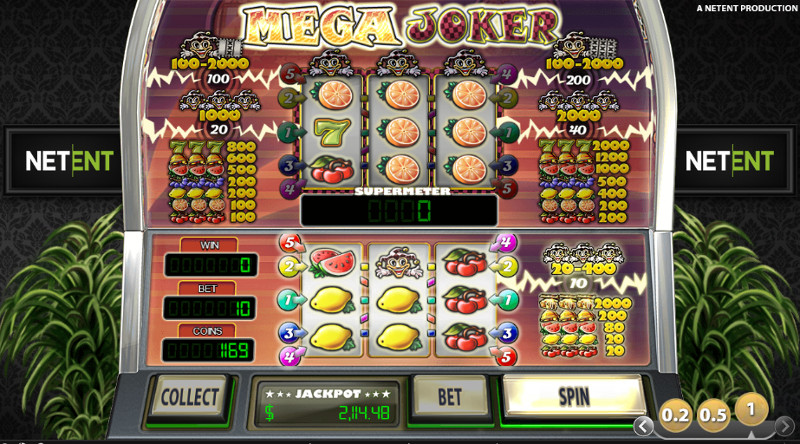Return to Player (RTP) represents one of the most critical yet frequently misunderstood aspects of online slot gaming. While many players recognize RTP as a percentage, its true significance extends far beyond a simple numerical value. This fundamental metric influences not only the likelihood of winning but additionally shapes the entire gaming experience through its relationship with volatility, hit frequency, and long-term play outcomes. Understanding how RTP works empowers players to arrive at educated choices about their game selection and betting strategies, ultimately affecting their chances of success in the dynamic world of online slots.
Key Takeaways
- RTP (Return to Player) represents the theoretical percentage of money returned to players over time, typically ranging from 85% to 99%.
- Higher RTP values mean better odds for players, with games above 96% generally offering more frequent but smaller payouts.
- RTP is calculated over millions of spins by game developers, making individual session results different from the theoretical percentage.
- Players can find RTP information in game help sections, provider websites, and online databases like ProfitDuel and rtp-database.com.
- RTP remains fixed regardless of bet size, time of day, or player status, dispelling common myths about manipulated payout rates.
What RTP really Means?
Return to Player (RTP) percentage represents a fundamental metric in online slot gaming, indicating the theoretical percentage of wagered money that a slot machine will pay back to players over time.
RTP is calculated by dividing the total amount returned to players by the total amount wagered, then multiplying by 100. For example, if players wager $1,000,000 and receive $960,000 in returns, the RTP would be 96%. Free trials can help players understand RTP mechanics before committing real money.
Most online slots feature RTP values ranging from 85% to 98%, with higher percentages indicating better potential returns for players. This metric directly relates to the house edge – a higher RTP means a lower advantage for the casino.
It’s essential to understand that RTP is theoretical and based on millions of simulated spins. Individual session results may vary significantly owing to the random nature of slot gameplay. Progressive jackpot slots typically offer lower RTP percentages as a portion of each bet contributes to the growing jackpot pool.
While RTP serves as a valuable guideline for selecting games, it doesn’t guarantee specific outcomes. The metric proves most useful when considering long-term play rather than short gaming sessions.
Finding Slot Machine RTP Values
Primary Methods to Locate RTP:
- Check the game’s Help or Information button within the slot interface
- Visit the game provider’s official website
- Consult extensive online databases like ProfitDuel and rtp-database.com
- Review the machine’s information panel in land-based casinos
- Ask casino staff for RTP information
Online databases have emerged as particularly valuable resources, with platforms like ProfitDuel scanning over 7,000 casino games and rtp-database.com covering more than 30,000 slots. These databases provide instant access to RTP percentages, helping players identify games with above-average returns. Random Number Generators ensure each spin result is independent and fair, making RTP statistics reliable indicators of expected returns.
For best results, players should focus on slots with RTPs higher than the online average of 95-96%. Using these databases and tools allows players to make data-driven decisions about their gameplay, maximizing potential returns while minimizing financial risk through informed choice of games.
RTP Calculation Methods
For online slots, calculating Return to Player (RTP) follows a straightforward mathematical formula: Total Payouts divided by Total Bets, multiplied by 100. For example, if a slot machine processes $1,000,000 in bets and returns $950,000 in payouts, the RTP equals 95%.
Game developers determine RTP through thorough simulations involving millions of spins before assigning a final value. This process guarantees accurate representation of long-term averages, though actual results may vary during individual gaming sessions. Understanding that RTP is based on long-term calculations helps players avoid unrealistic expectations about short-term results.
Key Components of RTP Calculation:
- Mathematical probability assessments
- Large-scale game simulations
- Regulatory compliance checks
- Long-term performance data
- House edge considerations
The calculation method applies across different casino games, with variations based on specific rules and game types. For instance, European roulette’s RTP calculations factor in both winning and losing probabilities for different bet types.
While players cannot access the extensive data used in RTP calculations, gaming authorities require casinos to maintain specific RTP ranges. These values typically appear in game information sections or regulatory reports, providing transparency for informed gaming decisions.
High vs Low RTP Games
A game’s RTP percentage serves as a crucial indicator of its potential profitability, with high RTP slots offering 96% or above and low RTP games typically falling below 94%. Understanding these differences allows players to make strategic choices aligned with their gaming objectives and risk tolerance.
| Characteristic | High RTP (96%+) | Low RTP (<94%) |
|---|---|---|
| Payout Frequency | More frequent | Less frequent |
| Jackpot Size | Usually smaller | Often larger |
| Volatility Level | Typically lower | Usually higher |
| Budget Required | Suitable for smaller | Requires larger |
| Session Duration | Longer gameplay | Shorter sessions |
High RTP games like Mega Joker (99%) and Blood Suckers (98%) feature basic reels and fewer paylines, delivering consistent smaller wins. These games prove ideal for players seeking extended gameplay with moderate risk levels. House edge remains low at approximately 1-2% for these high-paying slots.

Conversely, low RTP slots often incorporate progressive jackpots and complex features, allocating a portion of each bet to the jackpot pool. While these games offer potential massive payouts, they typically require larger budgets and higher risk tolerance.
Players must consider their gaming style, budget constraints, and desired volatility when selecting between high and low RTP options. Regular RTP verification guarantees well-informed choices and appropriate game selection.
Common RTP Myths Debunked
Several persistent myths surrounding RTP in online slots continue to mislead players, in spite of clear evidence to the contrary. Understanding these misconceptions is essential for making knowledgeable choices about slot gameplay.
A common myth suggests that streamers receive preferential RTP rates from casinos. Nevertheless, licensed software developers set fixed RTP rates that casinos cannot modify for individual players. The RTP calculation derives from millions of spins across all players, not individual sessions. Independent testing bodies verify and monitor RTP compliance to maintain fairness across all casinos.
Another widespread misconception links stake size to winning probability. The reality is that RTP remains constant regardless of bet amount, as it is based on total money wagered rather than individual stake sizes. Random Number Generators guarantee consistent fairness across all betting levels.
Time-based myths also persist, with some players believing certain hours offer better winning chances. Still, both RTP and RNG systems operate independently of time, maintaining consistent mathematical probabilities throughout all playing periods.
Finally, players should understand that RTP represents long-term statistical averages rather than guaranteed short-term results. While volatility affects individual sessions, the overall RTP remains fixed, with the house edge representing the casino’s mathematical advantage.
RTP and Game Selection Strategy
Making informed game selections based on RTP percentages can significantly impact a player’s long-term success in online slots. Players should prioritize games offering RTP rates of 96% or higher to maximize their potential returns over time. Understanding both RTP and volatility helps create a balanced gaming strategy aligned with individual risk tolerance. Testing out games through live RTP slots provides real-time insights into actual payout rates.
Game selection strategy involves several key considerations:
- Compare RTPs across different platforms and game providers
- Evaluate bonus features and free spin opportunities
- Consider the game’s variance level
- Review regulatory compliance and fairness standards
- Assess progressive jackpot potential versus base game RTP
Effective implementation of RTP-based selection requires:
- Regular review of casino regulation pages for accurate RTP information
- Testing games through demo versions before wagering real money
- Analyzing the relationship between game complexity and payout structure
- Maintaining consistent bankroll management practices
- Focusing on games from reputable providers with transparent RTP data
Players should note that while higher RTP percentages typically indicate better odds, other factors such as bonus features and payout frequency likewise influence overall gaming experience. Combining RTP analysis with careful consideration of game features guarantees ideal selection for sustained play.
Maximizing your RTP Knowledge
Selecting games with high RTP percentages and implementing strategic betting patterns forms the foundation of effective slot play optimization. Players can improve their gaming experience by researching RTPs before choosing games and maintaining detailed records of their results across different machines. Tracking personal RTP outcomes through systematic documentation helps identify which games consistently provide better returns, enabling more educated choices about future slot selections. Understanding that RTP varies significantly between different slot machines can help players make smarter choices when selecting games to play.
Smart RTP Selection Strategies
Through careful analysis and strategic decision-making, players can significantly improve their slot gaming experience by implementing smart RTP selection strategies. Understanding and leveraging RTP percentages allows players to make informed choices about which games offer the best potential returns.
To optimize slot selection based on RTP, consider these key actions:
- Research and document slots with RTPs above 96%, focusing on reputable software providers known for fair gameplay and transparent reporting
- Evaluate game mechanics, including paylines, bonus features, and volatility levels, to determine how these factors influence the overall RTP
- Monitor and track RTP databases regularly to stay informed about new games and changes in existing slot percentages
Utilizing reliable Random Number Generators ensures each spin’s outcome remains independent and unpredictable, maintaining game integrity and fairness. When implementing RTP selection strategies, prioritize games that align with regulatory standards and offer complete transparency in their paytables. Focus on providers who consistently maintain high RTP percentages across their game portfolios. Moreover, consider how promotional offers and bonuses can improve the effective RTP of chosen slots. Always verify that selected games comply with jurisdictional requirements and maintain proper documentation of RTP figures.
Tracking your RTP Results
Several vital tools can improve your RTP tracking efforts:
- Automated tracking applications that record spin results
- RTP databases containing information on thousands of games
- Casino paytable documentation
- Community-driven data platforms
To effectively track your RTP:
- Record your total bets and wins for each session
- Document game-specific RTP percentages
- Compare your results with theoretical RTP values
- Monitor performance across different games and casinos
Understanding your tracked data allows knowledgeable choices about:
- Game selection based on historical performance
- Bankroll management strategies
- Risk assessment and adjustment
- Bonus optimization opportunities
Remember that RTP tracking is most effective when viewed over extended periods, as short-term results may vary significantly from theoretical returns. With Slot Tracker, users can automatically record and analyze their gaming data without manual spreadsheets. Focus on games with RTP percentages of 95% or higher to maximize potential returns and maintain sustainable playing sessions.
RTP Regulation and Testing
Rigorous testing procedures and regulatory standards guarantee that online slot games maintain their advertised Return to Player percentages. Independent audit laboratories like eCOGRA conduct thorough certifications to verify that actual RTP matches theoretical RTP through extensive game data analysis. Operators must comply with jurisdiction-specific RTP requirements, such as the UK’s 99.9% minimum threshold and Malta’s 85% minimum, while maintaining transparent reporting of these percentages to players. Game developers establish RTP through advanced testing algorithms during the creation process to ensure fair gameplay.
Testing Procedures and Standards
Testing procedures and standards for online slot machines operate under strict regulatory frameworks established by governing bodies like the UK Gambling Commission and Malta Gaming Authority. These organizations enforce specific requirements for RTP verification and game certification through approved testing agencies.
The testing process includes three essential components:
- RNG testing – verification of random number generator algorithms, source code review, and statistical analysis
- Game testing – evaluation of software implementation, design elements, and RTP calculations through simulations
- Integration testing – assessment of game performance when combined with different platforms and RNG systems
Testing agencies must maintain detailed documentation of their findings and provide thorough test reports. These reports include specific information about game design, RNG implementation, and testing outcomes. Different jurisdictions enforce varying RTP requirements, with minimum thresholds ranging from 85% in Malta to 99.9% in the UK for online slots. Random number generation ensures every spin produces a completely independent outcome, making pattern prediction impossible.
Regular audits by independent firms like eCOGRA confirm ongoing compliance with stated RTPs and jurisdictional regulations. Non-compliance can result in significant penalties and potential loss of gaming licenses, making adherence to testing standards vital for operators and developers.
Audit Lab Certification Process
The audit lab certification process represents an all-encompassing framework for validating online slot machine compliance with RTP standards and regulatory requirements. Leading certification bodies like iTech Labs and eCOGRA conduct thorough evaluations to guarantee games meet jurisdictional standards and operate fairly. Independent auditors analyze millions of game rounds to verify that the actual RTP matches the advertised theoretical return rates.
The certification process follows a structured approach:
- Initial application and evaluation of the gaming system
- Extensive testing of RNG systems and payout verification
- Assessment of security protocols and vulnerability testing
- Review of information backup and incident management procedures
- Final certification decision by the certification manager
Annual recertification is mandatory to maintain regulatory compliance, with costs varying based on application type and evaluation complexity. Different jurisdictions enforce specific RTP requirements, such as 85% in Malta and 99.9% in the UK for online slots.
Key components of the audit process include:
- Adherence to ISO/IEC 27001:2013 standards
- Regular vulnerability assessments
- Network security control verification
- Penetration testing
- Documentation of RTP values for transparency
Successful certification guarantees operators meet regulatory requirements and can continue offering their games in regulated markets.
RTP Compliance Requirements
Across regulated gaming jurisdictions, RTP compliance requirements establish strict standards for online slot performance and fairness. The UK Gambling Commission mandates a minimum RTP of 99.9%, while Malta’s Gaming Authority requires at least 85% for casino games. These requirements guarantee players receive consistent and transparent gaming experiences. Annual RTP monitoring helps operators maintain continuous oversight of game performance and fairness.
Testing and verification processes maintain compliance through:
- Independent test houses conducting thorough RNG evaluations
- Statistical analysis of game performance over extended periods
- Integration testing when implementing games across different platforms
Operators must demonstrate ongoing compliance through regular audits and certifications. This includes verification of theoretical RTP calculations, actual performance monitoring, and documentation of all testing procedures. Approved testing agencies validate that games perform according to their stated specifications.
Game developers and operators balance multiple factors when meeting RTP requirements. These include game design elements, software specifications, and volatility considerations. Regular monitoring guarantees sustained compliance with jurisdiction-specific standards. The process requires transparency in RTP reporting, clear communication of game statistics to players, and maintenance of detailed compliance records for regulatory review.
Online versus Land-Based RTPs
Statistics consistently show that online slots offer significantly higher Return to Player (RTP) percentages compared to their land-based counterparts. While online slots typically maintain RTPs between 92% and 96%, physical casino slots typically operate in the 69% to 90% range.
This substantial difference in RTP can be attributed to several key factors:
- Lower Operating Costs: Online casinos have reduced overhead expenses, allowing them to offer more favorable RTPs.
- Space Efficiency: Virtual platforms can host thousands of games without physical constraints.
- Reduced Maintenance: Digital slots require minimal upkeep compared to physical machines.
- Lower Game Royalties: Online platforms often benefit from more competitive licensing fees.
The advantage of online slots becomes particularly evident when examining exceptional cases. Some online games, such as Ugga Bugga, feature RTPs exceeding 99%, while high-RTP slots above 92% are rare in land-based venues. With an average online RTP of 96-97%, players typically experience better theoretical returns through digital platforms. These percentages are verified through extensive statistical simulations and regulated Random Number Generator (RNG) systems. Once these RTPs are established during development, they remain fixed and unchangeable by either operators or players.



